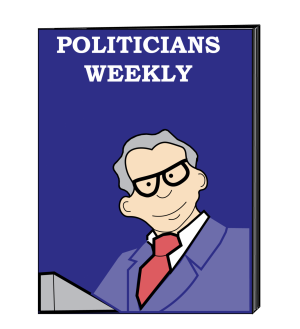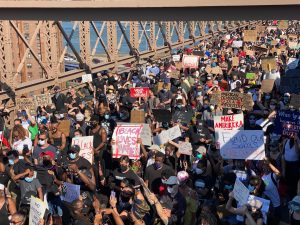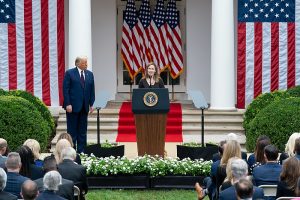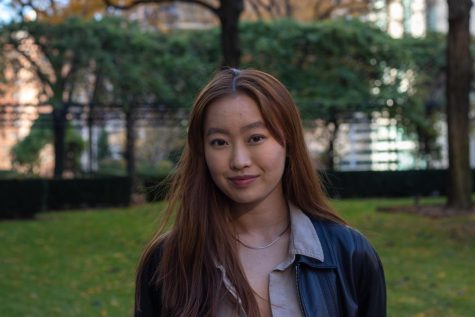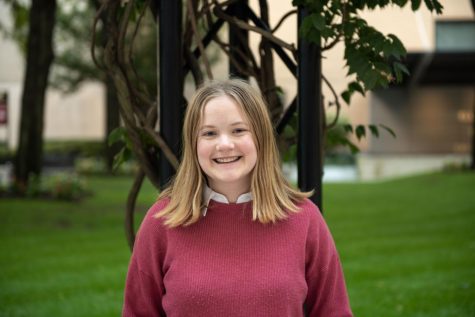Barrett’s Gain is the LGBTQ+ Community’s Loss
October 28, 2020
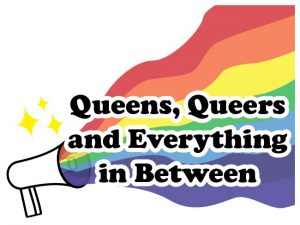 June 26, 2015, was a good day. A really good day. It was a day of celebration, of happy tears. It was a day of sighs of relief and shouts on the streets and couples kissing in public with no fear. It was a day that my still-closeted 15-year-old self celebrated alone. June 26, 2015, was a day long overdue, but, at last, love won.
June 26, 2015, was a good day. A really good day. It was a day of celebration, of happy tears. It was a day of sighs of relief and shouts on the streets and couples kissing in public with no fear. It was a day that my still-closeted 15-year-old self celebrated alone. June 26, 2015, was a day long overdue, but, at last, love won.
I didn’t know victory could be taken away. Except if you cheat, but we didn’t cheat, did we? We fought, protested, suffered and died for this. If anything, we were the honest ones and they were the liars, telling us our love was illegal.
But apparently, there’s no fairness in love and war. The appointment of Amy Coney Barrett to the Supreme Court and President Trump’s potential reelection could threaten the safety of the LGBTQ+ community and the win on June 26.
Among those on the Supreme Court who helped legalize same-sex marriage through Obergefell v. Hodges was Ruth Bader Ginsburg, whose death a month ago alarmed anyone with rights that had to be won, including immigrants, racial minorities, females, LGBTQ+ individuals and more.
Even if we manage to vote Trump out of office, Barrett is here to stay. And since she’s here to stay, the slow erosion of any LGBTQ+ progress we’ve made will follow.
On Monday, Oct. 27, we saw Ginsburg’s empty seat taken by Barrett, whom Trump nominated. Barrett completely tilted the seesaw that is the Supreme Court by taking the sixth conservative seat and minimizing the liberal side to only three judges. It took Trump only a week to get Barrett a four-day hearing, which ended on Oct. 25. Even if we manage to vote Trump out of office, Barrett is here to stay. And since she’s here to stay, the slow erosion of any LGBTQ+ progress we’ve made will follow.
During this hearing, Barrett failed to say a single word in support for Obergefell v. Hodges. When asked about LGBTQ+ issues such as Lawrence v. Texas, which decriminalized public displays of affection between queer couples, Barrett avoided answering directly.
Barrett has been paid five times to speak at the Blackstone Legal Fellowship, a program under the Alliance Defending Freedom, which is an organization with an anti-LGBTQ+ agenda. Namely, they hold the belief that same-sex marriage undermines the validity of Christian religions.
Barrett’s nomination came only weeks after the Supreme Court refused to hear the case of Kim Davis, a former clerk who was sued by two same-sex couples after denying them marriage licenses. Davis claimed her actions were based on her religious beliefs.
Two Supreme Court justices, Clarence Thomas and Samuel A. Alito Jr., supported the decision to turn down this case. Thomas wrote a pitiful statement victimizing Davis, saying she was “one of the first victims of this court’s cavalier treatment of religion in its Obergefell decision” and added that others “with sincerely held religious beliefs concerning marriage will find it increasingly difficult to participate in society without running afoul of Obergefell.”
Victims? That would be the same-sex couples whom Davis turned down illegally.
Cavalier? That’s to describe a Supreme Court justice who cannot see past outdated and poorly supported religious beliefs for the sake of his own discomfort.
Difficult to participate in society? That’s being refused a marriage license. It’s being scared to hold your significant other’s hand in public. It’s being told you’re sick for whom you want to kiss.
Unsurprisingly, both Thomas and Alito dissented back in 2015. At the time, Thomas wrote, “It will be used to vilify Americans who are unwilling to assent to the new orthodoxy.”
We may live in New York City, where we can walk two blocks off campus and see Pride flags flying high on every corner of Hell’s Kitchen, but queer people still suffer from discrimination, ranging from subtle to outrageous, and will continue to do so in this pending crisis we are facing.
The day after the upcoming presidential election, the Supreme Court will hear the case Fulton v. City of Philadelphia. This case is about how two foster care agencies in Philadelphia turned down service to same-sex couples based on, you guessed it, religious beliefs. The city of Philadelphia threatened these agencies’ business unless they fixed their discriminatory practices, which resulted in one of the two agencies, Catholic School Services, suing Philadelphia.
Not only does the organization want the privilege to refuse to serve same-sex couples but Catholic School Services is also striving for the Supreme Court to allow various public services to deny service to anyone who offends their religious beliefs, including LGBTQ+ people and those who are of non-Catholic religions.
With Amy Coney Barrett securing the open Supreme Court seat, it does not look like Fulton v. City of Philadelphia or any other cases involving LGBTQ+ issues will be handled with care. If Catholic School Services wins in Fulton v. City of Philadelphia, same-sex couples could be turned away from businesses again. Their families could be illegitimized, their marriages could be broken and they could lose all the rights that come with legalized marriage.
This is a not-so-friendly reminder that LGBTQ+ rights are far from secure. With every victory, we have conservatives exploiting their religion to try to take back what’s rightfully ours. We may live in New York City, where we can walk two blocks off campus and see Pride flags flying high on every corner of Hell’s Kitchen, but queer people still suffer from discrimination, ranging from subtle to outrageous, and will continue to do so in this pending crisis we are facing.
So, yes, please vote. Please vote Trump out of office. But also please know that no matter what happens next week, Trump will have a legacy and it will leave ugly effects. The scary truth is that my and so many others’ rights lie in the hands of nine justices who have job security and a horrifying amount of power until they die. And until they do die, our hands are pretty tied.
I will always remember how I felt the day love won on a hot summer day in 2015. I don’t want to remember the day Obergefell v. Hodges gets overturned.


